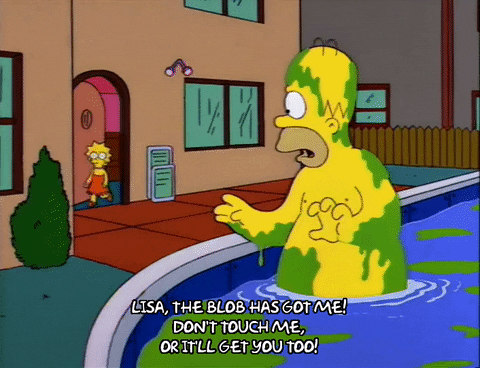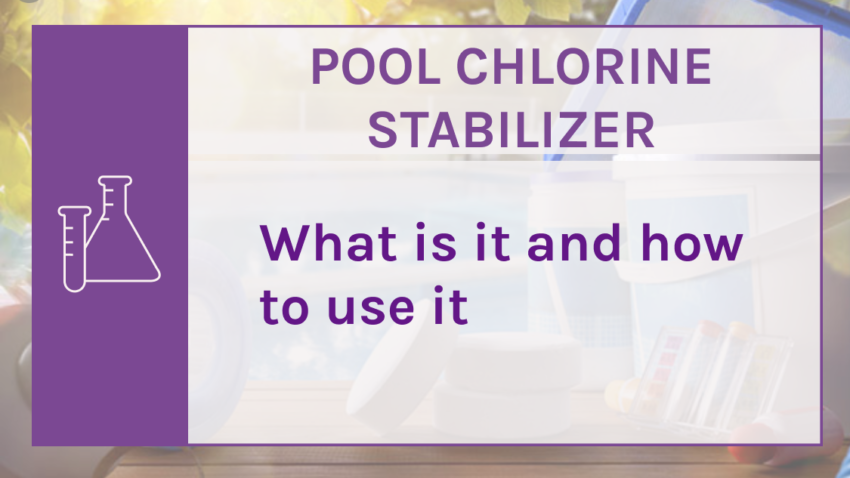Chlorine stabilizer definition
Stabilizer is commonly referred to as pool chlorine stabilizer, cyanuric acid (CYA) or pool conditioner and is the chemical compound (CNOH)3. For the purpose of this blog, we will call it CYA, and no it’s not “that” acronym!
Why is it important?
CYA has a key role in helping keep your pool (or spa) water in balance if you use chlorine as a sanitizer.
CYA prevents your chlorine from being broken down by the sun’s UV rays and you can think of CYA as sunscreen for your chlorine.
Without CYA the sun can deplete almost all of your chlorine within a couple of hours and allow pathogens and algae to grow (check here if algaes are your case).


What form(s) does Pool Chlorine Stabilizer (CYA) come in and how do I use it?
CYA comes as liquid chlorine stabilizer, in granular form (not tablets), and is also found in certain types of stabilized chlorine pucks and shock.
Granular CYA
Granular CYA typically comes in small buckets, pales or sacks and can be added in various ways.
Typical ways to add granules include dissolving them in warm water and pouring into skimmer, adding them to an old sock or pair of panty hose and suspendeding in front a return jet to dissolve the granules (works best if the water is already warm from the heat of the sun) or adding granules to skimmer basket.
